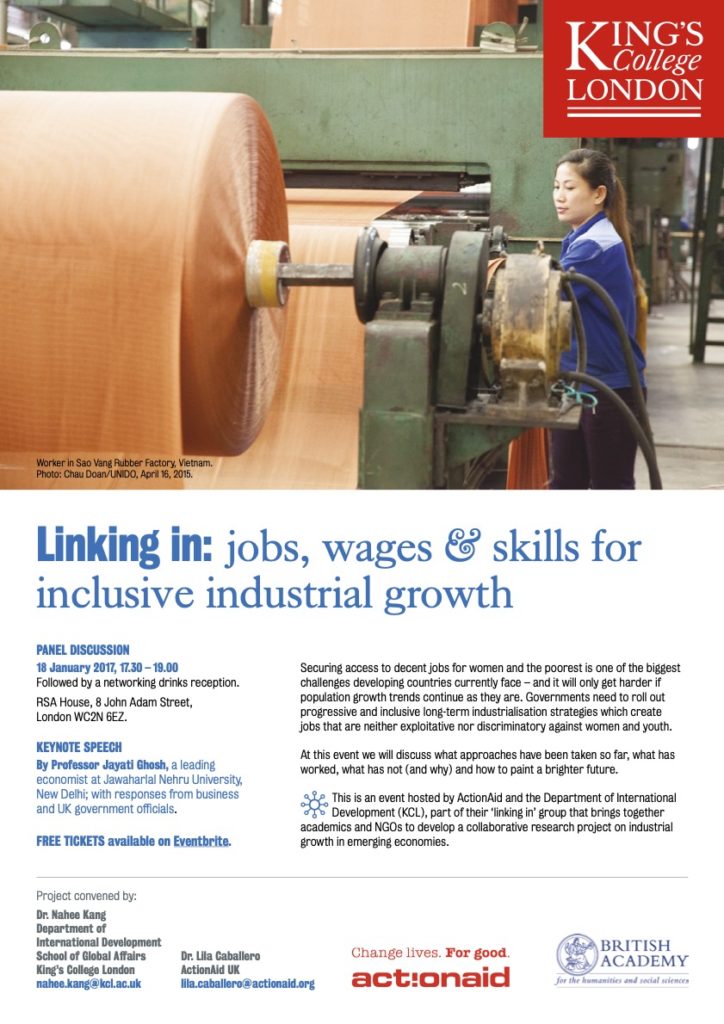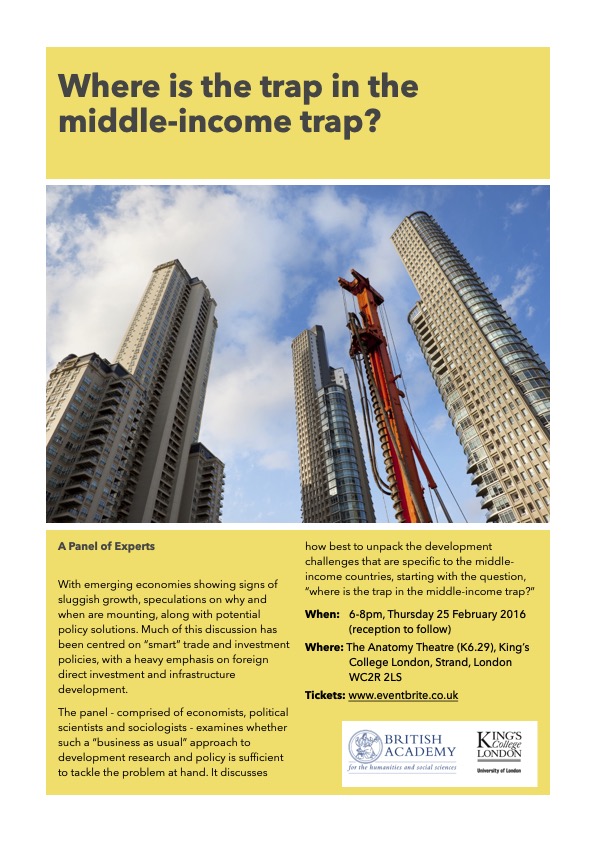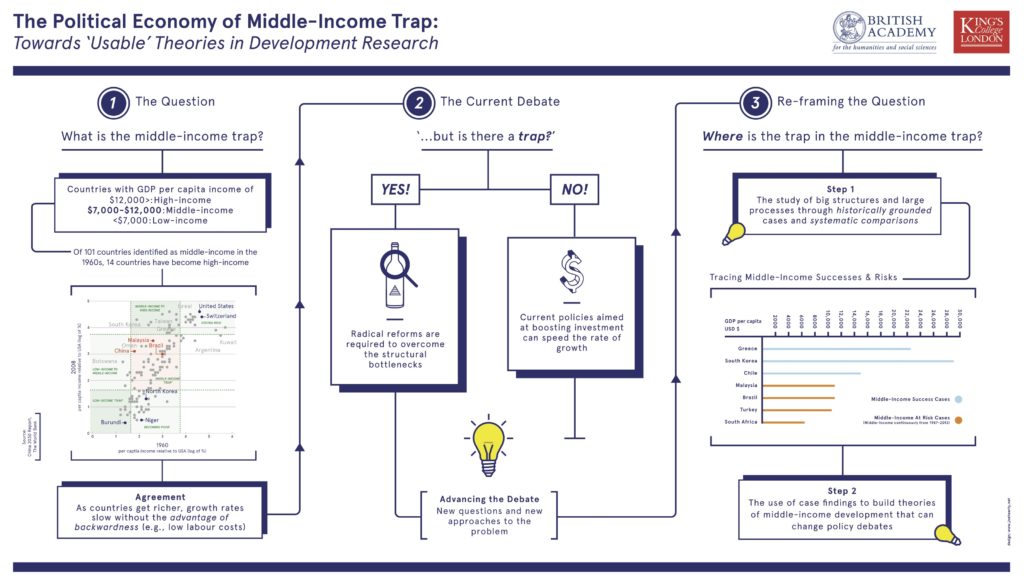Over the last decade, I have worked on three strands of inter-related research:
1. Institutional Dynamics of Late Capitalism
The first strand stems from my doctoral research funded by the Cambridge Political Economy Trust at University of Cambridge, and post-doctoral fellowship funded by Economic and Social Research Council (ESRC), which examined the institutional dynamics of “late” capitalism. By exploring corporate and industrial change in South Korea in the aftermath of the Asian Financial Crisis of 1997-98, I identified the strengths and weaknesses of state-led coordination in the development of firm capabilities.
2. The Political Economy of Middle-Income Trap
The second strand is on the political economy of the middle-income trap, funded by the British Academy’s Rising Star Engagement Award, that explored a specific set of challenges that middle-income economies face in making the leap necessary to attain high-income status.
3. The Politics of Inclusive Industrial Growth for High-Income Transition

The third, and most recent strand of work is on the new politics of solidarity in East Asia, funded by the KCL-Nanyang Technological University Partnership Fund. This project examines the challenges of sustaining the “growth with equity” model of development amidst post-industrial change in Northeast and Southeast Asia.

